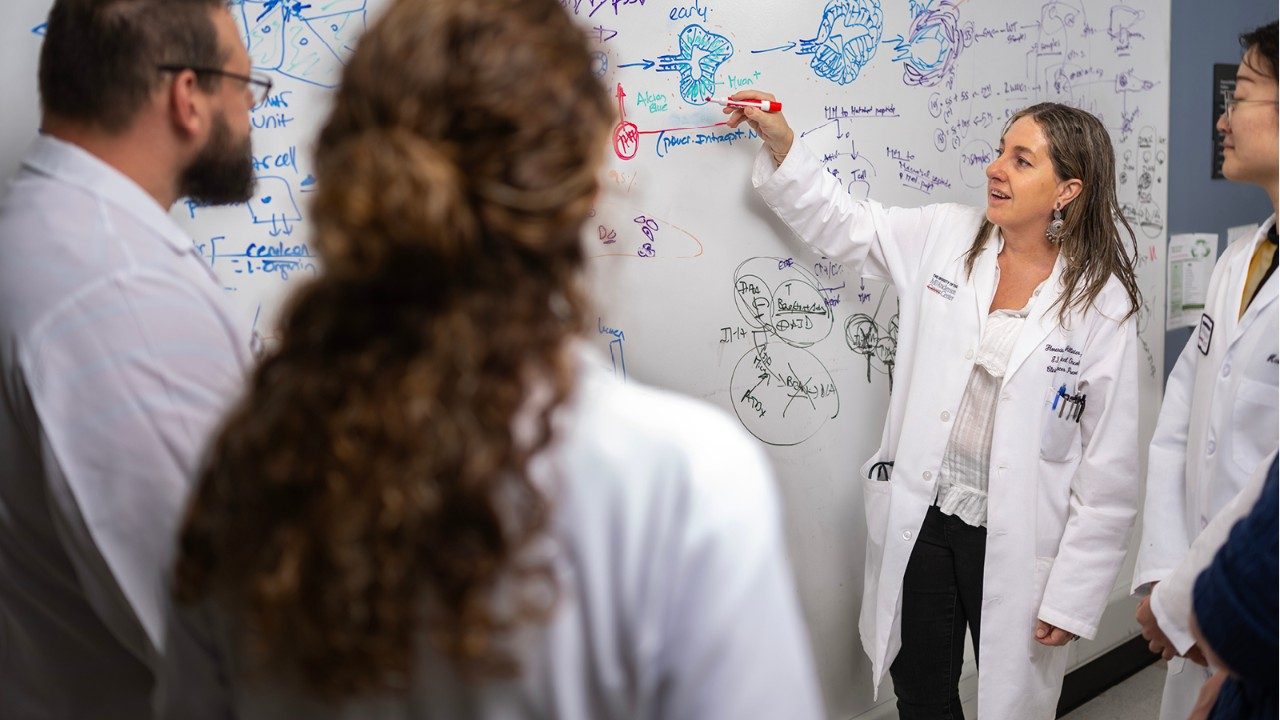Negative effects of vaping on teens
When e-cigarettes were first sold, many claimed users would be adult smokers who wanted to stop smoking regular cigarettes.
But youth oriented marketing, sweet flavors that appeal to kids and the availability of products that are easy to hide led to an epidemic of use among teens who have never tried regular cigarettes.
Surgical drains 101: What to know about their use, care and removal
Negative effects of vaping on teens
What types of cancer can cause itchy skin?
|
Healthy Living
|
|---|
|
Healthy Living
|
|
Diagnosis & Treatment
|
|
Healthy Living
|
|
Healthy Living
|
Find stories by topic
Find out everything you need to know to navigate a cancer diagnosis and treatment from MD Anderson’s experts.
What types of cancer can cause itchy skin?
March 24, 2025
Awake craniotomy for brain tumors: 8 questions
March 21, 2025
Should you get a central line for chemotherapy?
March 21, 2025
What is a total laryngectomy?
March 20, 2025
Why I began my nursing career at MD Anderson
March 18, 2025
What is hematemesis? Vomiting blood, explained
March 14, 2025
Read inspiring stories from patients and caregivers – and get their advice to help you or a loved one through cancer.
Music to a mother’s ears: Awake craniotomies bring musicians together
February 24, 2025
Art Space volunteer draws inspiration from young friend
January 31, 2025
Cancer survivor summits highest point in contiguous U.S.
January 22, 2025
Prostate cancer survivor excited to donate blood again
January 17, 2025
Get MD Anderson experts’ advice to help you stay healthy and reduce your risk of diseases like cancer.
Negative effects of vaping on teens
March 28, 2025
How to avoid injury when starting a new exercise routine
March 19, 2025
How to clean your ears safely: Tips to avoid harm
March 17, 2025
7 bird flu questions, answered
March 07, 2025
Why is it harder to lose weight as you get older?
March 07, 2025
8 viruses that cause cancer
March 04, 2025
Learn how MD Anderson researchers are advancing our understanding and treatment of cancer – and get to know the scientists behind this research.
How non-scientists are helping cancer researchers
February 21, 2025
4 questions with immunology researcher Susan Bullman
February 04, 2025
4 questions for mathematical oncologist Heiko Enderling, Ph.D.
January 28, 2025
Committed to making cervical cancer screening easier
January 08, 2025
11 new research advances from the past year
December 19, 2024
Finding hope for cancer patients in ferroptosis research
December 12, 2024
Advances in small cell lung cancer classification
November 25, 2024
Exploring pancreatic cancer vaccines: What’s next?
November 21, 2024
Read insights on the latest news and trending topics from MD Anderson experts, and see what drives us to end cancer.
How to take medications properly: 6 questions, answered
February 28, 2025
Clinical Ethics Fellow passionate about improving patient care
February 27, 2025
Senior speech pathologist: Patients are my No. 1 priority
February 19, 2025
Motivated to do more for pediatric patients
February 18, 2025
Leukemia nurse fulfills promise to her late mother
February 17, 2025
Dogs boost employee wellness and morale
February 12, 2025
Find out what inspires our donors to give to MD Anderson, and learn how their generous support advances our mission to end cancer.
Three cancer survivors raise funds to support Colorado patients
October 03, 2024
Inflammatory breast cancer survivor finds hope at MD Anderson
October 24, 2023















































